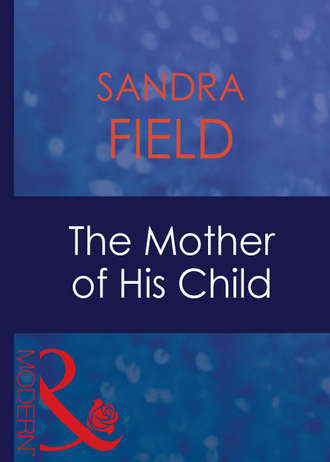
Полная версия
The Mother Of His Child
“Okay, I’ll bite. What is it?”
“Compassion, Cal. Simple compassion. That’s all.”
She had, she saw, taken him by surprise. She didn’t know Cal Huntingdon very well, but she was sure it wasn’t often that he was knocked off balance. Especially by a woman. He said flatly, “Compassion has to be earned.”
“Then I’ll tell you why I’m here. I wanted to see the house where my daughter lives. I’d hoped to ask a few questions of the locals, find out what you’re like. You and your wife. To see—” her voice shook in spite of herself “—if my child is happy.”
“And that’s all?”
She hated him for so openly doubting her. “Do you honestly believe I’d turn up on your doorstep without a word of warning?” she flared. “Oh, hello, I happen to be your daughter’s biological mother and I was just passing by and thought I’d drop in. For heaven’s sake, I don’t even know if she realizes she’s adopted! What kind of woman do you think I am?”
“I’d have to have the brains of Einstein to answer that.”
“Does she know? That she’s adopted?” Marnie whispered, twisting her hands painfully in her lap as she waited for him to sneer at her again, to deny her information that was crushingly important to her.
“Look at me, Marnie.” There was a note in his voice new to her. She raised her head and saw, momentarily, something that was perhaps compassion. He said quietly, “Yes, she knows she’s adopted. We were truthful with her about that from the start. We thought it best in the long run.”
Marnie blinked back another flood of tears. “Do you see what that means?” she blundered. “It means that—even if minimally—she knows I exist.”
“You and the man who fathered her.”
Two tears dripped on her clasped fingers. Refusing to acknowledge them, Marnie said steadily, “That’s right.”
He said evenly, “There’s one thing you haven’t asked me.”
“Is she happy?”
“I didn’t mean that. You haven’t asked me her name. The name we gave our daughter.”
More tears welled up on her lashes. She’d been afraid to ask. “So what did you call her, Cal?”
“Katrina. Katrina Elizabeth. She goes by Kit.”
Suddenly, it was all too much for Marnie. Desperate to be alone, she fumbled for the door handle. Blinded by tears, sobs strangling her breathing, she yanked on the catch. Cal caught her by the shoulder. Frantically, she twisted free of him. “Let go! I can’t take any more of this.”
And then the door was open and she was tumbling to the ground, her feet splashing in a puddle, the wind snarling her hair. She slammed the door shut and lunged for her own car, scrambling into her seat and instinctively jamming down the lock button on her side and the passenger side. It was a two-door car. She was safe. Only then did Marnie bow her head onto the steering wheel and begin to weep, sobbing as though there was no tomorrow.
Dimly, Marnie realized someone was banging on the window. Had been for some time. She looked up, blinking through her wet lashes. The rain had lessened, pattering softly on the windshield. Cal was rapping on the glass with his fist. He was very wet. He must have been standing there the whole time, watching her sob her heart out.
Invading her privacy.
She rolled her window partway down and said jaggedly, “I am not going to turn up on your doorstep, and once I’ve filled the car up with gas I’m going home. Goodbye, Mr. Huntingdon.”
“Oh, no,” he said softly, “it’s not quite that simple. Before you go anywhere, I want you to swear you won’t try to get in touch with Kit.”
“I wouldn’t be that irresponsible!”
“Swear, Marnie.”
If looks could kill, his would have blitzed her in her seat. Pushing her hair back from her face, Marnie scowled right back. She needed to blow her nose. Which, she knew from past experience, was undoubtedly bright pink after her crying jag. “I won’t do anything to harm my daughter. And you’ll have to be satisfied with that—because it’s all you’re getting from me.”
She turned the key in the ignition, and for once her car started on the first try. But as she reached for her seat belt, Cal inserted his hand through the gap, yanked on the lock button and pulled her door open. He barked, “You’re not calling the shots here—I am. As Kit’s father. You say you’re going to get gas. You think they won’t look at you down at the station and see Kit Huntingdon written all over you? You’re a walking time bomb, and I want you to promise you’ll head out of Burnham right now and you won’t come back. Do you hear?”
His voice had risen during this speech; Marnie might not care for large, angry men, but on the other hand she wasn’t about to show Cal Huntingdon she was shivering all the way to her very wet shoes. “All right, I’ll buy my gas out of town! Now will you please shut the door and let me get out of here before anyone sees me? The last thing you should be doing is holding me up. What if a friend of yours comes along?”
A muscle twitched in his jaw. “The next time I come to the supermarket for milk on a Sunday, I’ll think twice,” he snarled. “Remember what I said, Marnie Carstairs. Get out of Burnham and stay out. And don’t you dare try to get in touch with Kit.”
He slammed the door in her face. She pushed the clutch into first gear, flicked on the wipers and drove away without a backward glance, her fingers gripping the steering wheel as though it were Cal’s throat. At the exit to the parking lot, she turned right. Right led her out of town. Away from the local gas station and away from Moseley Street.
Away from Katrina Elizabeth Huntingdon, her daughter. Known as Kit. And away from Cal and Jennifer Huntingdon, the couple who nearly thirteen years ago had adopted her.
It would take a woman of extraordinarily strong character to live with Cal. What was Jennifer Huntingdon like? And was she a good mother?
Was she beautiful? It was unlikely Cal would be married to someone who wasn’t. Yet he’d called her, Marnie, beautiful…. Why had he done that?
A mile out of town, when she’d passed the vinyl-sided Baptist Church and the boutiques temptingly arrayed for the tourists, Marnie pulled into a take-out stand. It was one-thirty. She hadn’t had lunch, and her ice cream had ended up on Cal’s Cherokee instead of in her stomach. She’d buy a sandwich. And then she’d do some hard thinking.
She took her sandwich to a small picnic spot along the shore, choosing the end table so she’d have privacy. The rain had stopped; the undergrowth smelled damp and pungent. She sat down on the wet bench and started to eat. Cal shouldn’t have tried ordering her about. She’d never liked being told what to do. Charlotte Carstairs had been long on orders and short on love, and there was no question in Marnie’s mind but that her own child had been conceived—at least partly—out of rebellion.
The sandwich tasted good. Chickadees were chattering companionably among the trees, and waves lapped on the rocks. Gradually, Marnie calmed down, all her new knowledge settling more gently into her mind. Her daughter’s name was Kit. Kit looked so like Marnie that Cal had ordered Marnie out of town. Because he didn’t want anyone knowing about Kit’s real mother. He certainly didn’t want to run any risk of Kit and Marnie meeting.
Which hurt. Hurt quite dreadfully.
With a jolt, Marnie suddenly remembered the one question Cal hadn’t answered. An extremely important question. In fact, the most essential question of them all. Whether Kit was happy.
He’d sidestepped it by telling Marnie Kit’s name. Whereupon she’d cried a bucket and forgotten to ask the question again. Was it just a genuine oversight on his part? Or had he had other motives? Motives of deception? Darker motives.
Chewing on her chicken salad, Marnie let a picture of Cal Huntingdon fill her mind. Unconsciously, and even in the midst of that turmoil of emotion in the parking lot, she realized that ever since they’d met she’d been searching for the one word that would encapsulate him. She’d come up with arrogant, sexy and masculine, and certainly each of those was accurate enough. Dangerous seemed entirely apt, as well. But something else was nagging at her mind, making her deeply uneasy. For some reason, she found herself remembering how facetiously she’d thought about the sort of scary movie she hated: the man-with-an-ax-coming-up-the-stairs kind. The bad guy.
She didn’t for one minute think Cal was a potential ax murderer. No, that wasn’t what she was getting at. But he did pose an enormous threat to her at a level that was gut-deep.
Was it his willpower? He had that all right. He’d hated her defying him.
Take away the first syllable of willpower, she thought, and what have you got? Power. That was it. The man reeked of power. His body, his voice, his actions—all of them were imbued with the unconscious energy of a man used to wielding power.
Charlotte Carstairs had been in love with power all her life. It had taken a huge and ongoing effort on Marnie’s part to prevent that power from ruining her own life, from making her as bitter and unloving as her mother.
Marnie finished her sandwich, drained the bottle of apple juice she’d bought to go with it and got back into her car. She rummaged in her haversack, found the square scarf that went with her raincoat and wrapped it, turban-style, around her head, carefully tucking her hair under it. She fished out her dark glasses and generously coated her lips with Strawberry Pearl Glaze. With some satisfaction, she looked at herself in the mirror. She did not look like the woman who’d bought an ice cream cone in the pouring rain.
Then she turned out of the picnic spot and headed back toward Burnham.
This time, she did have a plan.
She drove slowly through the town, her eyes peeled for a dark green Cherokee. At the gas station, she pulled up to the pumps and asked for a fill-up, adding casually, “I’m looking for Cal Huntingdon. Can you tell me where he lives?”
“Sure thing. Go to the fork in the road and hang a left. Moseley Street. His place is about a kilometer from the fork. Big cedar-shingled bungalow on the cove. Nice place. Want your oil checked, miss?”
“No, it’s fine, thanks.” As the red numbers clicked on the pump, she said with complete untruth, “I used to know him in my college days. Haven’t seen him for a while.”
“Yeah? Too bad about his wife, eh?”
Marnie’s fingers tightened around her credit card. “I—I hadn’t heard…is something wrong? I was in the area today and thought I’d drop in on them.”
“Well, now…she passed away two years ago. Cancer. Took her real fast, which is a blessing, I guess.”
“Oh,” said Marnie. “Oh. I’m sorry. I didn’t know.”
“Hard on the kid. And on Cal, too, of course. That’s twenty-five even, miss.”
Feeling thoroughly ashamed of herself, Marnie handed over her card and a few moments later signed the slip. “I may phone first,” she said. “Rather than just dropping in. Thanks for telling me.”
“No problem. You have a nice day now.”
“Nice” wasn’t quite the word Marnie would have used to describe the day she was having. Her heart was racketing around in her chest again. She turned out of the gas station and asked the first person she saw for directions to the junior high school. Within ten minutes, she had a mental picture of the layout of the town and had figured out the probable route Kit Huntingdon would take to walk from Moseley Street to the consolidated school. Only then did Marnie leave Burnham.
She hadn’t seen a green Cherokee. And she’d be the first to admit she lacked the courage to drive past the cedar-shingled house on the cove.
Cal Huntingdon was a widower. Had been for two years. Which meant, unless he had a live-in girlfriend, that Kit was motherless.
Even though intuition told her Cal wasn’t the type for a live-in girlfriend, not when he had an adolescent daughter, that same intuition insisted that any woman worth her salt would be after him. Wanting to comfort him. In bed and out.
Bed? Don’t go there, Marnie. Not when Cal’s on your mind. Cal plus bed could be a combination several steps beyond dangerous. You swore off men years ago, and even thinking about Cal Huntingdon in a sexual context is lunacy. Kit’s the issue here, and only Kit.
He hadn’t told her the truth. He’d allowed her to think that Kit had two parents, a mother as well as a father. That everything was normal and as it should be in the Huntingdon household. Mother, father, daughter—and no place for Marnie.
Beneath a very real sorrow for an unknown woman who had died far too young, Marnie was aware of anger, red-hot and seething. Kit had been left, tragically, without a mother. And yet Cal had dared to warn off the woman who had borne Kit all those years ago, a woman who had, surely, some claim on his honesty.
Some claim on Kit.
CHAPTER THREE
ON MONDAY morning, just before eight, Marnie arrived at the fork in the road that led out of Burnham. Moseley Street, the sign said. She flicked on her signal light and turned left. She was driving her best friend Christine’s small white Pontiac; she’d phoned Christine last night and asked if they could trade cars for the day.
Cal Huntingdon wouldn’t even notice if a white Pontiac drove past his house.
She checked the odometer, her heart hammering in her chest as loudly as a woodpecker on a tree. The Huntingdons lived about a kilometer down the road, according to the man at the gas station. It was a pretty road, following the curve of the bay and lush with evergreens. Point-seven kilometers, point-eight, point-nine. And then Marnie saw the cedar-shingled house on the cove, the mailbox neatly lettered “Huntingdon.”
She braked. Although a dark green Cherokee was parked in front of the house, there was no one in sight, neither Cal nor a young girl hurrying up the driveway on her way to school.
It was the house of her dreams.
Marnie’s mouth twisted. She’d had a lot of dreams over the years, several of which she’d made real—by guts, determination and plain hard work. But she was a long way from realizing this particular one. For the house spelled money.
It was a low bungalow, following the sloping contours of the land and taking full advantage of a spectacular view of a rocky cove. Pines and hemlocks shaded the roof; through the bare limbs of maples, sunlight glittered on the waves. The weathered cedar shingles blended perfectly with the surroundings. The chimney was built of chunks of native stone, while the slate pathways were the color of Cal’s eyes.
It was perfect, Marnie thought. Utterly perfect.
In terms of material goods, Kit was obviously in another league from Marnie. Discovering she didn’t like this thought one bit, Marnie put her foot to the accelerator and continued down the road, reluctantly noticing that the Huntingdon property extended several hundred feet farther along the cove. But why was she surprised that Kit had been adopted into money? She’d known all along that her mother worshiped money and even more the power it conferred; Charlotte wouldn’t have placed her grandchild with anyone who lived in poverty.
In her will, Charlotte had left Marnie the sum of one hundred dollars. The rest of her estate had been allocated to build a town hall and a library in Conway Mills. The will had been dated the day of Kit’s birth; a matter of hours after the birth, when Marnie’s world was disintegrating around her, Charlotte had informed Marnie that she was disinherited.
At the time, money had been the furthest thing from Marnie’s thoughts. But at the reading of the will, only a month ago, Charlotte’s unchanging bitterness toward her only daughter had had the power to wound deeply. Forgiveness, thought Marnie, was the most difficult of concepts. Had she herself ever really forgiven her mother?
Irritably, she wriggled the tightness from her shoulders and turned around in the third driveway beyond the Huntingdon place. As she drove past the bungalow again, there still was no sign of any occupants. Time for phase two, she decided grimly, and headed back into town. Ten minutes later, she was tucked into a window booth in the coffee-and-doughnut shop on the corner of the street by the junior high school. If she was right, Kit would walk along this street.
The sun, fortunately, was shining from a cloudless sky and again it was overly warm for late April. Marnie was wearing her largest pair of sunglasses and a big floppy hat under which she’d tucked most of her hair; it also hid her face. She’d taken the precaution of buying the daily paper in case she had to hide behind it.
She felt excruciatingly nervous. It was one thing to drive past the house where Kit lived; quite another to actually see her daughter.
Although she hated horror movies, Marnie loved James Bond. This morning, she was discovering she’d make a lousy espionage agent. She felt as though everyone in the place was staring at her and as though Kit, were she to go past the window, would pick her out unerringly.
She couldn’t allow that to happen. Wouldn’t allow it. All she wanted was to see her daughter. For the very first time. See if she was happy.
Was that too much to ask?
Last night, she’d phoned the principal of her school to tell him some urgent family business had come up and she needed the next day off. So here she was on a Monday morning in a coffee shop in Burnham when she should have been in the school library sorting books and checking out the computers.
Kids were now straggling past the coffee shop in loose groups, some with headsets, all in the regulation designer-label jeans and jackets with bright logos. Marnie sipped on coffee that could have been lye and unfolded the newspaper. Maybe Kit had a friend at the other end of town and walked to school a whole different way. Or else she might go by so fast Marnie wouldn’t have time to recognize her.
She certainly couldn’t chase after her.
A group of girls came around the corner of the building, their heads together, their laughter loud enough to be heard through the glass. One of them was tall with red hair, curly red hair that bounced in the sunlight.
Turn around, Marnie prayed. So I can see your face. Oh, please, turn around.
As though the girl had heard her, she pointed at the array of doughnuts in the showcase and said something Marnie couldn’t catch but that made all the other girls laugh. The girl’s face was almost a replica of Marnie’s, right down to the tilted nose and high cheekbones, except that her eyes were a warm brown. The color of Terry’s eyes.
It was Kit. Unquestionably it was Kit.
Then, to her horror, Marnie saw the whole group veer toward the door of the coffee shop. She grabbed her newspaper and lifted it, hiding her face, her fingers trembling. Although she braced her elbows on the table and willed her hands to steadiness, they wouldn’t obey her.
The bottom of the door scraped on the black plastic floor mat. “What kind of doughnut, Kit?” one of the girls called out.
“Double chocolate. Maybe that way I’ll stay awake in math class.”
The others giggled. Another voice said, “Boston cream for me. Kit, did you study for the test?”
“Yeah…my dad made me.”
One of the others groaned in sympathy. “My mum did, too. I wanted to watch a MuchMusic video instead.” In a wicked parody of an adult’s voice, she went on, “‘Not until the weekend, Lizzie.’ Mothers are such a drag.”
“Shut up, Lizzie,” Kit flared.
“Oops, sorry,” Lizzie said. “I’ll have a maple cream and share it with you, Kit.”
“Okay. You know what? I’m going to ace that test,” Kit said confidently. “I’ve got to keep my marks up or I’m off the basketball team. Dad said so.”
Kit’s voice was light, higher-pitched than Marnie’s. Willing herself to stop shaking, Marnie listened as the girls paid for their doughnuts and trooped out of the coffee shop. Over the top of the paper she caught one last glimpse of Kit. She was taking a big bite out of the double chocolate doughnut; she was wearing Levi’s and a baggy purple sweatshirt. Marnie’s favorite color was purple.
Marnie sat still, gazing blindly at the newsprint, trying to assimilate the fact that after thirteen years she had actually seen her daughter. Heard her voice. Had evidence, she thought wryly, of Kit’s quick temper, so like Marnie’s. Kit hadn’t liked Lizzie’s remark about mothers. Did that mean Kit still missed her mother? It must.
What had Jennifer Huntingdon been like? Warm and loving? Strong-willed? Happy?
A gang of teenage boys rocketed through the door, their energy making Marnie wince. She listened as they argued about doughnuts, then watched them leave with relief. What did Kit think about boys? Was she interested in them yet? Or did basketball interest her more?
You’ll never know the answer to those questions, Marnie. Because Kit is Cal’s daughter, not yours.
Slowly, Marnie lowered the newspaper, trying desperately to ignore the storm of emotion engulfing her whole body. Now what? she wondered. What do I do next?
When she’d decided last night that she was going back to Burnham despite Cal’s warnings, she hadn’t gotten any further than seeing Kit. Well, she’d seen her. Seen her friends, noticed her clothes, heard her voice. That’s it, Marnie. Kit’s happy enough, even if she does still miss her mother. Certainly she’s well looked after financially. You’ve done everything you can do. Now you’ve got to return to Faulkner and stay away from Burnham. The last thing you can risk is bumping into your daughter on the street. You can’t do that to her. It would be utterly unfair.
Moving like a woman much older than thirty, Marnie left her unfinished coffee and her newspaper on the table and walked out of the shop. She was going to drive home and cry her eyes out for the second time in as many days. She hardly ever cried. But that was what she was going to do.
It didn’t make much sense to cry—after all, she now had a face and a voice for her daughter where yesterday she’d had nothing—but she knew she had to do it. She ached all over, as though someone had pounded her body mercilessly in her sleep: an ache both physical and emotional, the same ache she’d suffered in that hospital bed in the private clinic so many years ago.
As she turned up a side street, she passed from sunlight into shade. She didn’t see the man standing statue-still between the two nearest buildings; rather, she was reaching into the pocket of her jeans for the keys to Christine’s car, her mind anywhere but on her surroundings. Not until a tanned, strong-fingered and unmistakably masculine hand fastened itself around her elbow was she jerked out of her reverie. “You’re coming with me,” Cal Huntingdon said in a clipped voice infused with rage, “and don’t bother arguing.”
With a strange sense of inevitability, Marnie looked up. Had she really thought she’d get away with her caper in the coffee shop? Saying the first thing that came into her head, she muttered, “I didn’t see the Cherokee.”
“I parked it on the next street. I didn’t see that wreck you’re driving, either. Come on.”
He was pulling on her arm as though she were eight years old. She said coldly, “I’m perfectly capable of walking to your car. Let go.”
“No.”
Although he hadn’t loosened his grip, Cal did stop tugging so hard. His fingers were warm; as she marched along beside him, Marnie discovered to her dismay that she liked the contact. Liked his height, the way his gray shirt was rolled up to his elbows, the tanned column of his throat. Scared to death by this realization, she said defiantly, “You didn’t see my car because I borrowed a friend’s.”
“I figured you’d pull a stunt like that. Which is why I was watching for you.”
“Don’t you think you should be at work? To pay for the very expensive house I drove past this morning?”
“It’s paid for, Marnie Carstairs. Every shingle and tree root. I’m surprised you didn’t bang on the door to check out the furniture.”
To her annoyance, Marnie couldn’t come up with a retort that would sound anything other than pettish. They’d reached the Cherokee; she climbed in and fastened her seat belt. As Cal turned on the ignition, she said with deliberate provocation, “Where are we going? Home for coffee?”






